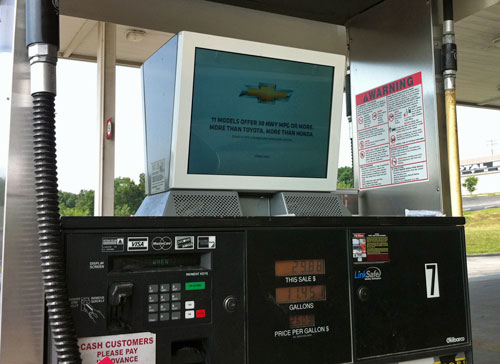Once upon a time I thought I might like to work at an advertising agency. I had no idea what an advertising agency did but ti seemed like a glamorous job and I was writing and producing commercial for the radio station I was working at, so… why not.
In the years since, advertising has been what put the pay in my paycheck.
Enter the Web (the dragon has come and gone). Like just about every other institution, advertising is being disrupted. In this article at Fast Company, Danielle Sacks talks to some of the players. If you care who said what, you can read the full article. For that matter, if you’re involved in ad-supported media in any way, you should read the article.
“Something digital immigrants would do is make a phone call to make sure someone received an email.”
Our company is like Ellis Island. I receive email from some co-workers and know that I can turn around in my chair and they will be standing there, “just making sure” I received their electronic message.
“Like a beetle preserved in amber, the practice of advertising has sat virtually unchanged for the last half-century.”
“The ad business became an assembly line as predictable as Henry Ford’s. The client (whose goal was to get the word out about a product) paid an agency’s account executive (whose job was to lure the client and then keep him happy), who briefed the brand planner (whose research uncovered the big consumer insight), who briefed the media planner (who decided which channel — radio, print, outdoor, direct mail, or TV — to advertise in). Then the copywriter/art director team would pass on its work (a big idea typically represented by storyboards for a 30-second TV commercial) to the producer (who worked with a director and editors to film and edit the commercial). Thanks to the media buyer (whose job was to wine-and-dine media companies to lower the price of TV spots, print pages, or radio slots), the ad would get funneled, like relatively fresh sausage, into some combination of those five mass media, which were anything but equal. TV ruled the world. After all, it not only reached a mass audience but was also the most expensive medium — and the more the client spent, the more money the ad agency made.”
“The death of mass marketing means the end of lazy marketing.”
“The Internet has turned what used to be a controlled, one-way message into a real-time dialogue with millions.”
“…the most surprising aspect of JetBlue’s agency search was how many firms still believed that the key to solving any business problem was the 30-second spot.”
“We have to figure out how to get paid for the big idea, and what that idea is worth.” — “People who think that way are supremely well equipped to work in a world that no longer exists.”
“I thought digital was just another medium”
“Collapse is simply the last remaining method of simplification. When the ecosystem stops rewarding complexity,” he writes, “it is the people who figure out how to work simply in the present, rather than the people who mastered the complexities of the past, who get to say what happens in the future.” – Clay Shirky
I have no idea how –or when– this will shake out. Or how much fan poop will come my way. But it’s an exciting time of great change. I describe these as Lawn Chair Moments. There’s going to be a big train wreck and you want to get a good view. But you don’t want to put your lawn chair too close.
More after this brief commercial message.


